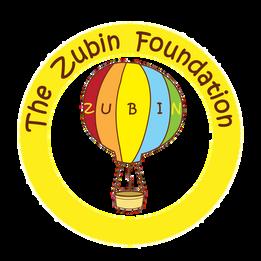Mental Health of Ethnic Minorities in Hong Kong
Findings of the Ethnic Minority Well-being Centre Between 1 January 2021 and 31 December 2022
March 2023
Shilpa Patwardhan, Winnie Ng, Shalini Mahtani, The Zubin Foundation


 Edited by Rosie Lanham
Edited by Rosie Lanham
PROFILE OF CLIENTS
From 1 January 2021 to 31 December 2022, The Ethnic Minority Well-being Centre accepted 213 ethnic minority (EM) individuals to benefit from counselling services
Gender
Ethnicity
85% of our clients were female Pakistani (43%), Indian (25%) and Nepali (15%) were the largest ethnic groups that received counselling
SEVERITY AND RISKS
of clients were ranked as ' severe ' or 'extremely severe ' on the standardised Depression, Anxiety, Stress Scale (DASS).
80% 23% of clients exhibited a risk of suicide or self-harm Majority of them had repeated thoughts of a passive wish to die
PRESENTING SYMPTOMS
The most frequently presenting symptoms included:
Age Group
More than half the clients (58%) were youth; categorised as those, aged 30 years old or below
MEASURING EFFECTIVENESS OF OUR COUNSELLING
Anxiety Depression Stress
Self-harm tendencies Low selfesteem Anger management
A randomised controlled trial study was conducted to evaluate the effectiveness of the counselling service, and a total of 120 clients were enlisted
The results showed that participants who received counselling experienced greater reductions in their depression (-11 67 vs -2 80 in the control group) and anxiety (-7.70 vs. -2.23 in the control group) symptoms, as well as greater improvements in their quality of life related to their mental health (+12.77 vs. +3.08 in the control group).
The HKU findings report is available on Mental Health of Ethnic Minorities Online Resource Platform for Professionals – see link in the last page of this infographic

7% Filipino Intervention Control Depression Anxiety QualityofLife-MentalHealth 15 10 5 0
Organiser: ©2023 The Zubin Mahtani Gidumal Foundation Limited All Rights Reserved
Strategic Partner and Sponsor: Research Sponsor: In Partnership With:
1 2% Indonesian 1% Sri-Lankan 3% Mixed Ethnicity 4% Bangladeshi 15% Nepali 25% Indian 43% Pakistani 15% Male 85% Female 1% 51 to 60 52% 18 to 30 27% 31 to 40 14% 41 to 50 6% Below 18
Improvement in Mental Health Outcomes C h a n g e s i n S c o r e Mental Health Indicators 11 67 2 80 7 70 2 23 12 77 3 08
1. Family Conflicts
A. Parent-Child Conflicts
Differing Generational Values: Different from their traditional parents, many EM youth were born and raised in Hong Kong and have been exposed to a more contemporary Western culture. The difference in values has created conflicts in daily life across a range of issues, from how children should dress, to views on education, work and marriage
Forced Marriage: Forced marriage is common practice amongst Pakistani clients. Refusing a forced marriage would bring shame on the family As a result, women are coerced into marrying against their will
Love Marriage: Conflicts occurred when love marriages took place without family approval, often resulting in persistent, lifelong grudges
The Girl Child: Daughters are often seen as less important than sons in EM families Their education is of lower priority and they are not supposed to express opinions, emotions or any sign of suffering.
Domestic Violence: Disturbed or complicated family environments due to domestic violence are psychologically damaging They can also contribute to further conflict between parents and children For example, children are sometimes angry at their mother for continuing to accept their father despite history of being violent.
B. Marital Conflicts
Patriarchal Families: Patriarchal family systems result in power imbalances Sometimes a husband may try to exert power through physical violence against his wife, if she does not comply with his wishes.
Husband-Wife Disagreement: Conflicts occur when the mother is blamed for childrens' behaviour or perceived short comings, as well as when there is financial hardship within the unit or pressure to financially support extended family
Other Intimate Relationships: Extramarital relationships can be a cause for marital discord, especially when the women stay in the marriage, despite knowing about the husband's affair(s) Parallel marriages or multiple marriages are accepted in Islam Some women reported suffering with mental health issues in relation to having to accept polygamy within their marriage
Communication Failure: Marital discord can result from lack of communication with the spouse This is particularly common in forced marriages, where separation or divorce may not be an option for the couple
C. Conflicts with Extended Families
Extended family play a big part in ethnic minority culture. They are often involved in important family decisions This can create stress and tension between the couple
2. History of Trauma
A. Physical Disciplining
Physical or emotional abuse at the hands of parents is often a part of a disciplining strategy and is widely accepted in certain cultures This can result in trauma to the children
B. Sexual Abuse
Abuse can happen at the hands of a close family member, a distant relative, a peer or an outsider If the abuser is a family member, parents prefer for their child to hide this fact and the victim does not receive any support to deal with the trauma.
C. Domestic Violence/Parental Marital Discord
Domestic violence between couples can cause trauma for the violated spouse - but seeking help is rare This is also traumatic to children: either as victims themselves or as witnesses and silent sufferers.
Beating the wife is a common thing in many families that I know; I never thought of seeking help for that.
- 45 years old, Female
COMMON ISSUES
2
©2023 The Zubin Mahtani Gidumal Foundation Limited All Rights Reserved
4. Other Issues
Large family size is not uncommon in some ethnic minority populations, a typical Pakistani family may have between 4 and 5 children The wife is usually responsible for managing the household and looking after all the children
This can be challenging for women in Hong Kong as there is a lack of support from extended family who may live in Pakistan
A. Financial Stress
This was intensified during the pandemic Many faced job losses and difficulties in finding new employment which created financial stress for the families
B. Pandemic-Related Stresses
The main contributors were job insecurity, family separation resulting from travel restrictions, stress from online schooling (especially due to lack of space) and lack of community support
Compliance with counselling treatment was also affected during the pandemic as there was a lack of privacy in the small homes of our clients, and with many family members around, it was difficult to conduct counselling online for some clients
C. Others
Clients also came to us for other common issues, like relationships with their partners, loss of friends/families, and physical health problems.
OUR
LEARNINGS - FOR PRACTITIONERS
1 2 3 4
Family and culture play an important role in EM mental health
Many issues faced by clients are specific to EM communities Clients have expressed reluctance in seeking help elsewhere, as they felt their issues may not be understood. It is therefore vital for professionals to be aware of cultural differences and enhance their understanding of EM cultures.
Building a relationship with clients and gaining trust
While one may not be knowledgeable about all aspects of a different culture, practitioners should be ready to understand and learn, and allocate enough time to get to know the client Understanding and empathy are key
Understand underlying issues and not just the symptoms
Clients may not be able to articulate their feelings in words due to language barriers and many of our clients believed that although they were given medication to manage their depression and anxiety, they were not given an opportunity to explore the root causes.
Exploration of the underlying issues through detailed history taking such as their family history, education, marriage, etc. would be useful, and should be approached with cultural sensitivity
Encourage clients to share their story
At The Zubin Foundation we found that the following actions helped clients to open up to their counsellors:
(i) Reassuring confidentiality,
(ii) Teaching them about mental health, and
(iii) Sharing the benefits of seeking help
5 6 7 8
Helpful and proven interventions
Our treatment protocol is based on Cognitive Behavioural Therapy (CBT). The intervention strategies such as emotional management, cognitive restructuring, promoting self-care practices, acceptance and problem-solving strategies were found useful Outside referrals for psychiatric help were also important when there was a need for psychiatric medications or a risk of self-harm
Monitor progress of at risk clients
For clients who are receiving parallel psychiatric treatment, mental health practitioners may seek to encourage compliance with psychiatric treatment and support clients to complete it
Deep-rooted issues take time to address
Many of the issues underlying mental health symptoms such as anxiety arising from marital conflicts or forced marriage cannot be resolved in a short period Practitioners may explore options available with the clients, work on accepting what cannot be changed and focusing efforts on things that are within the client's control.
Low-literacy clients
The CBT model of therapy may pose a challenge when applying it to clients with no formal education. We overcame these challenges by using pictures, diagrams and simple language We also tended to use more behavioural strategies.
COMMON ISSUES 3. Stress of Managing Families
3
©2023 The Zubin Mahtani Gidumal Foundation Limited All Rights Reserved
OBSERVATIONS
Directory for Psychiatric Resources
Demand is high for public psychiatric services and there is a long waiting time. This can demotivate clients to seek professional help More information on pro-bono or subsidised schemes to access private psychiatric services in English and EM languages would be useful
Collaborative Service Model
Clients may be hesitant to see other mental health service professionals due to concerns of language, cultural barriers or confidentiality
We found that for some clients, counselling on its own was insufficient. However, sometimes clients refused to be referred to other services A possibility that should be explored is The Zubin Foundation to work with Integrated Community Centre for Mental Wellness/schools/hospitals to develop a service model to co-support clients, especially those at risk.
Local Ethnic Minority District-based Mental Health Ambassadors
A team of ethnic minority mental health ambassadors in each district should be trained to help raise awareness of mental health amongst grassroots ethnic minorities, identify individuals with mental health needs and refer individuals to resources
Online Resource Platform for Professionals:
https://www.zubinfoundation.org/mental-health-resources/


aninitiativeofTheZubinFoundation
⼩
念 基
@zubinfoundation TheZubinFoundation TheZubinFoundation wwwzubinfoundationorg info@zubinfoundationorg +85225409588/+85225409488 DISCLAIMER: All information in this document is provided for general information only and is not in the nature of advice It should not be relied upon for any purpose and The Zubin Mahtani Gidumal Foundation Limited (TZF) makes no warranty or representation and gives no assurance as to its accuracy, completeness or suitability for any purpose Inclusion of information about a company, programme or individual in this publication does not indicate TZF’s endorsement Where cited, you should refer to the primary sources for more information TZF reserves the right to make alterations to any of its documents without notice The information and ideas herein are the confidential, proprietary, sole, and exclusive property of The Zubin Mahtani Gidumal Foundation Limited The Zubin Mahtani Gidumal Foundation Limited reserves the right to make alterations to any of its documents without notice COPYRIGHT: © 2023 The Zubin Mahtani Gidumal Foundation Limited All rights reserved Reproduction and dissemination of this document (in whole or in part) is not allowed without prior written permission of The Zubin Mahtani Gidumal Foundation Limited and due acknowledgment of authorship If use of this document (in whole or in part) will generate income for the license, prior written permission to that effect must be obtained from The Zubin Mahtani Gidumal Foundation Limited To obtain permission, write to info@zubinfoundation org
彬 紀
⾦
@zubinfoundation FOUNDATION
會 THE ZUBIN
The Zubin Foundation is a registered charity in Hong Kong (IR 91/12344), named after Zubin Mahtani Gidumal. We aim to improve the lives of Hong Kong’s ethnic minorities by reducing suffering and providing opportunities We do this by outreach in the community and driving systemic change.
The Zubin Foundation relies on donations from individuals, corporations, and foundations to fund its work. For more information, please visit: www zubinfoundation org
Mental Health of Ethnic Minorities
The Ethnic Minority Well-being Centre is a joint project between The Zubin Foundation and the Department of Psychiatry of The University of Hong Kong, funded by Lee Hysan Foundation and Croucher Foundation It offers free one-to-one counselling service to South Asian and Southeast Asian from low income families in Hong Kong The service was provided by ethnically South Asian counsellors who understand the cultures of these communities and speak English as well as Hindi, Urdu or Nepali The counselling team also delivered talks and workshops to raise awareness in the community. For more information about the Centre, please visit: https://www zubinfoundation org/our-work/ethnic-minority-well-being-centre/
EthnicMinorityWell-beingCentre


 Edited by Rosie Lanham
Edited by Rosie Lanham


